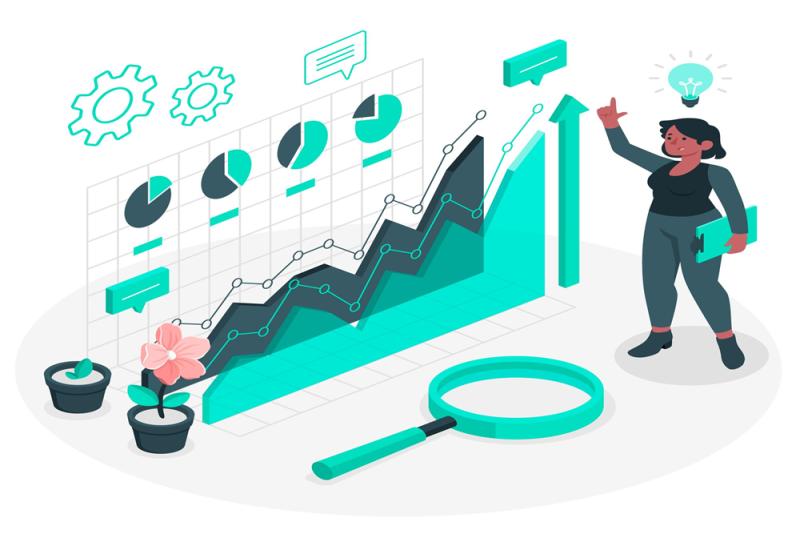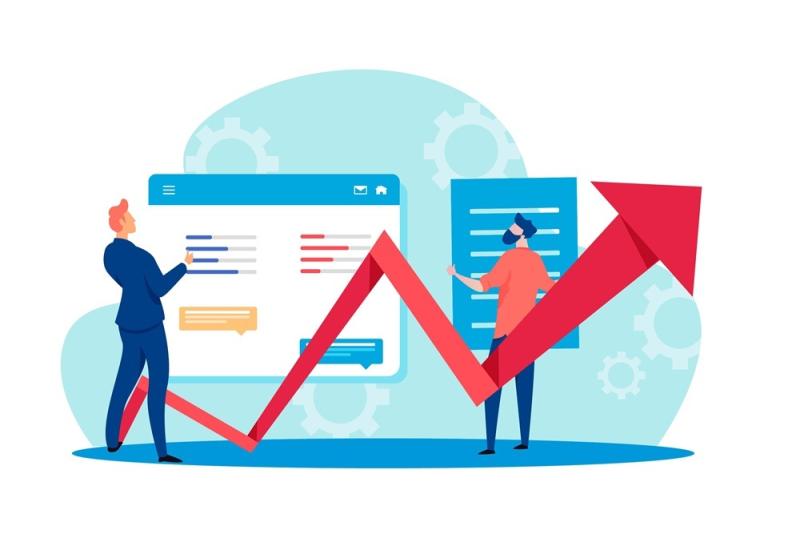Understanding the Key Elements of Supply Chain Management for Operational Success

Supply chain management (SCM) is the backbone of modern business operations, enabling companies to deliver products efficiently, reduce costs, and improve customer satisfaction. In today’s competitive global marketplace, companies cannot afford to overlook the importance of effective supply chain management. Understanding the key elements of SCM is essential for operational success, helping businesses streamline their processes, optimize resource allocation, and maintain a competitive edge.
In this article, we will explore the critical elements of supply chain management and how businesses can leverage these components for operational success. We will also highlight how AI-powered tools like thouSense are revolutionizing supply chain efficiency through advanced demand forecasting and data analysis.
What is Supply Chain Management?
Supply chain management involves overseeing the flow of goods, information, and resources from the point of origin (suppliers) to the final consumer. A well-managed supply chain ensures that businesses can meet customer demands promptly while maintaining cost-effectiveness and operational efficiency.
The complexity of managing a supply chain varies depending on the size of the business, its industry, and its geographic reach. However, the core elements of SCM remain the same across all industries. Let's dive into these key elements and explore how they contribute to operational success.
Key Elements of Supply Chain Management
1. Planning and Forecasting
The first and most important step in supply chain management is planning. It involves forecasting customer demand, determining how much inventory is needed, and ensuring that production resources are allocated efficiently. The accuracy of demand forecasting is critical to the success of the entire supply chain, as it helps businesses avoid both overproduction and underproduction.
Effective planning also requires coordination across different departments, such as sales, marketing, and production, to ensure that everyone is aligned with the supply chain objectives. Companies that excel in planning can anticipate market changes, adjust their supply chains accordingly, and avoid costly disruptions.
Advanced demand forecasting tools like thouSense can significantly enhance the planning process by using AI and machine learning to analyze historical data, market trends, and external factors.thouSense helps companies make data-driven decisions that optimize supply chain operations by giving real-time insights.
Benefits of Effective Planning:
Ensures the efficient allocation of resources.
Minimizes the risk of overproduction or stockouts.
Improves overall supply chain responsiveness.
2. Sourcing and Supplier Management
Choosing vendors who offer the components, raw materials, or services required for production is known as sourcing. Supplier management, on the other hand, is the ongoing process of building and maintaining relationships with these suppliers to ensure that the supply chain runs smoothly.
Choosing reliable suppliers is essential to maintaining quality standards, reducing lead times, and controlling costs. Monitoring supplier performance, controlling delivery schedules, and negotiating advantageous contracts are further components of effective supplier management.
Building strong supplier relationships can lead to better pricing, improved collaboration, and the ability to respond quickly to changes in market demand. Companies that manage their suppliers well can gain a significant advantage in terms of both cost and operational efficiency.
Benefits of Effective Sourcing and Supplier Management:
Guarantees quick material delivery and constant quality.
Helps reduce procurement costs through strong supplier relationships.
Enhances supply chain reliability and reduces the risk of disruptions.
3. Production and Manufacturing
Turning raw ingredients into final products is what production and manufacturing are all about. This element of the supply chain involves managing production schedules, labor, machinery, and quality control to ensure that products are manufactured on time and meet quality standards.
Efficiency in manufacturing is essential to the supply chain's overall performance. Companies that optimize their production processes can reduce waste, minimize costs, and improve product quality. Flexibility in manufacturing is also important, as it allows businesses to adjust their production capacity in response to changing demand patterns.
thouSense can assist in optimizing production planning by providing accurate demand forecasts, ensuring that companies produce the right quantity of goods to meet market demand without incurring unnecessary costs or holding excess inventory.
Benefits of Efficient Production:
Increases productivity and reduces production costs.
Ensures timely delivery of finished products.
Enhances product quality and minimizes defects.
4. Inventory Management
Inventory management is the process of controlling the amount of raw materials, work-in-progress items, and finished goods that a business holds at any given time. Effective inventory management is essential to ensuring that businesses can meet customer demand without overstocking, which can lead to excess costs and wastage, or understocking, which can result in stockouts and lost sales.
Optimizing inventory levels requires balancing demand with supply, and this can be challenging in industries with fluctuating demand. Businesses that use demand forecasting tools like thouSense can better predict future demand and adjust their inventory levels accordingly, ensuring that they have the right amount of stock on hand to meet customer needs.
Benefits of Effective Inventory Management:
Reduces inventory holding costs by avoiding overstocking.
Prevents stockouts and lost sales opportunities.
Improves cash flow by minimizing excess inventory.
5. Logistics and Distribution
Logistics and distribution are key elements of supply chain management that focus on the movement of goods from manufacturers to customers. This includes warehousing, transportation, order fulfillment, and delivery. Efficient logistics ensure that products are delivered to the right place at the right time, minimizing delays and reducing costs.
The logistics component of SCM is crucial to maintaining high levels of customer satisfaction. Businesses must choose the most cost-effective transportation methods, optimize delivery routes, and manage warehousing operations to ensure that products reach customers as quickly and efficiently as possible.
thouSense can provide valuable insights into logistics operations by analyzing shipping data, transportation costs, and delivery times. With these insights, businesses can make informed decisions to optimize logistics and reduce transportation costs.
Benefits of Efficient Logistics and Distribution:
Improves delivery times and customer satisfaction.
Reduces transportation and warehousing costs.
Streamlines the order fulfillment process.
6. Customer Service and Satisfaction
Since customer service has a direct impact on customer happiness and loyalty, it is an essential component of supply chain management. Ensuring that customers receive their products on time and in good condition is essential to building a positive reputation and encouraging repeat business.
Customer service also involves managing returns, handling customer inquiries, and resolving any issues related to order fulfillment. Companies that prioritize customer satisfaction can differentiate themselves from competitors and build long-term relationships with their customers.
By integrating demand analysis with customer service strategies, businesses can anticipate customer needs and provide a seamless shopping experience. thouSense can help companies track customer preferences and trends, enabling them to tailor their products and services to meet customer expectations.
Benefits of Excellent Customer Service:
Increases customer satisfaction and loyalty.
Enhances the overall customer experience.
Helps with demand forecasting by pointing out trends and preferences among customers.
7. Risk Management
Identification and mitigation of possible hazards that could upset the supply chain are key components of risk management. These risks can include natural disasters, geopolitical issues, supplier failures, or transportation delays. Having a risk management strategy in place allows businesses to prepare for these disruptions and minimize their impact on operations.
Global supply chains are particularly vulnerable to disruptions, and businesses must be proactive in developing contingency plans. This can include diversifying suppliers, increasing safety stock levels, or securing alternative transportation routes.
By using tools like thouSense, businesses can monitor market conditions and external factors that could pose risks to the supply chain. This enables companies to respond quickly to disruptions and minimize their impact.
Benefits of Strong Risk Management:
Reduces the impact of supply chain disruptions.
maintains business operations in the event of unforeseen circumstances.
Enhances supply chain resilience and flexibility.
How thouSense Enhances Supply Chain Management
thouSense is an AI-powered demand analysis tool that helps businesses optimize their supply chain operations by providing real-time data and insights. Here’s how thouSense improves key elements of SCM:
Planning: thouSense uses machine learning algorithms to analyze historical data and market trends, allowing businesses to create accurate demand forecasts and improve supply chain planning.
Inventory Management: By offering real-time demand tracking, thouSense ensures that businesses maintain optimal inventory levels, reducing excess stock and preventing stockouts.
Logistics: thouSense provides insights into transportation routes and delivery times, helping businesses optimize their logistics and distribution processes.
Conclusion
Supply chain management is a complex but critical function that plays a significant role in a company’s operational success. By understanding and optimizing the key elements of SCM—planning, sourcing, production, inventory management, logistics, customer service, and risk management—businesses can improve efficiency, reduce costs, and enhance customer satisfaction. AI-powered tools like thouSense further enhance SCM by providing real-time insights and accurate forecasts, helping businesses stay competitive in today’s fast-paced market.
FAQs
1. Why is demand forecasting important in supply chain management?
Demand forecasting helps businesses predict future demand, enabling them to plan inventory, production, and logistics efficiently. Tools like thouSense improve demand forecasting by providing accurate data-driven insights.
2. How does inventory management contribute to supply chain efficiency?
Effective inventory management ensures that businesses maintain the right amount of stock to meet customer demand while minimizing carrying costs. This helps improve cash flow and reduces the risk of stockouts.
3. How can AI tools like thouSense improve supply chain management?
AI tools like thouSense enhance supply chain management by providing real-time demand data, improving forecasting accuracy, optimizing logistics, and helping businesses make informed decisions.










Comments